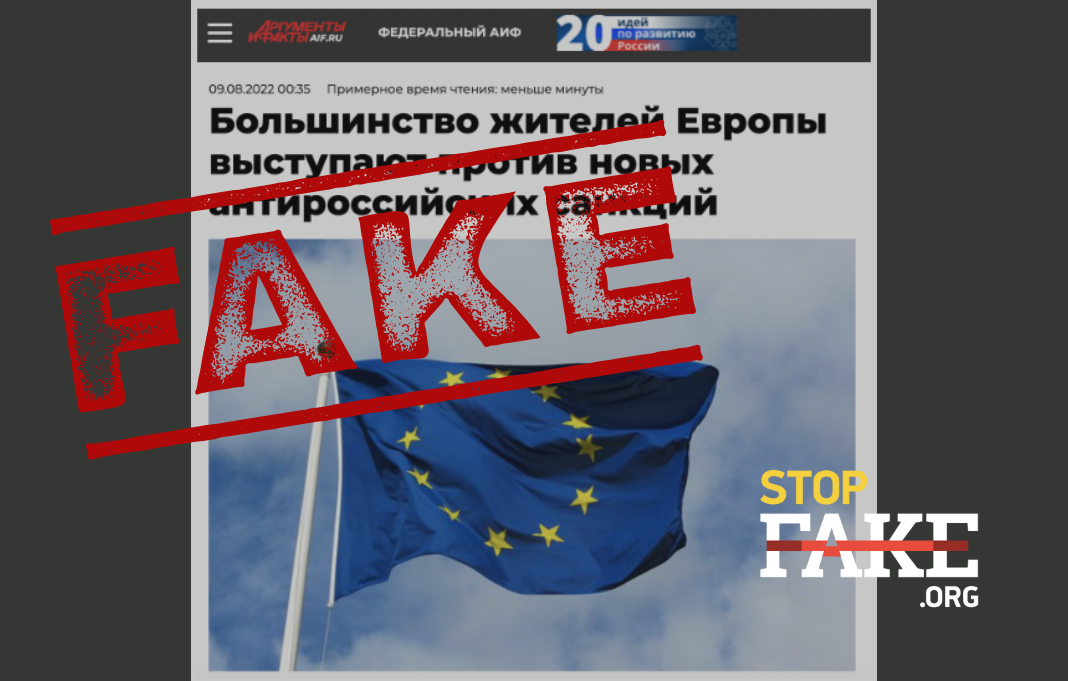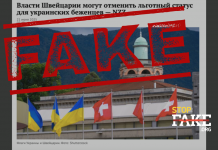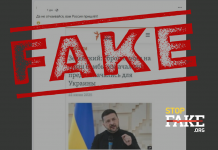According to a YouGov poll, the idea of introducing new additional sanctions against Russia has strong support among Europeans: 74% of those surveyed in Poland, 75% in the UK, 76% in Spain, 55% in Germany, 56% in Italy, 62% in France, all support the introduction of additional economic sanctions against Russia in their country. What the Europeans are unwilling to support are further sanctions against Russia if it would negatively impact their own standard of living. It was this single indicator – one of many in the survey – that the Kremlin media focused on, portraying it as the overall European sentiment on sanctions, thereby manipulating the integrity of the YouGov survey data.
Citing YouGov, a British international Internet company for market research and data analysis, Russian media declared that the majority of Europeans oppose the imposition of new anti-Russia sanctions.
“Most of the opponents of new anti-Russi sanctions turned out to be in France: 63% of the respondents were against, and 27% were in favor. Next come Italy (59% and 27%), Germany and Spain (54% and 34–35%), Great Britain (47% and 38%) and Poland (45% and 39%),” wrote the Argumenty I Fakty newspaper.
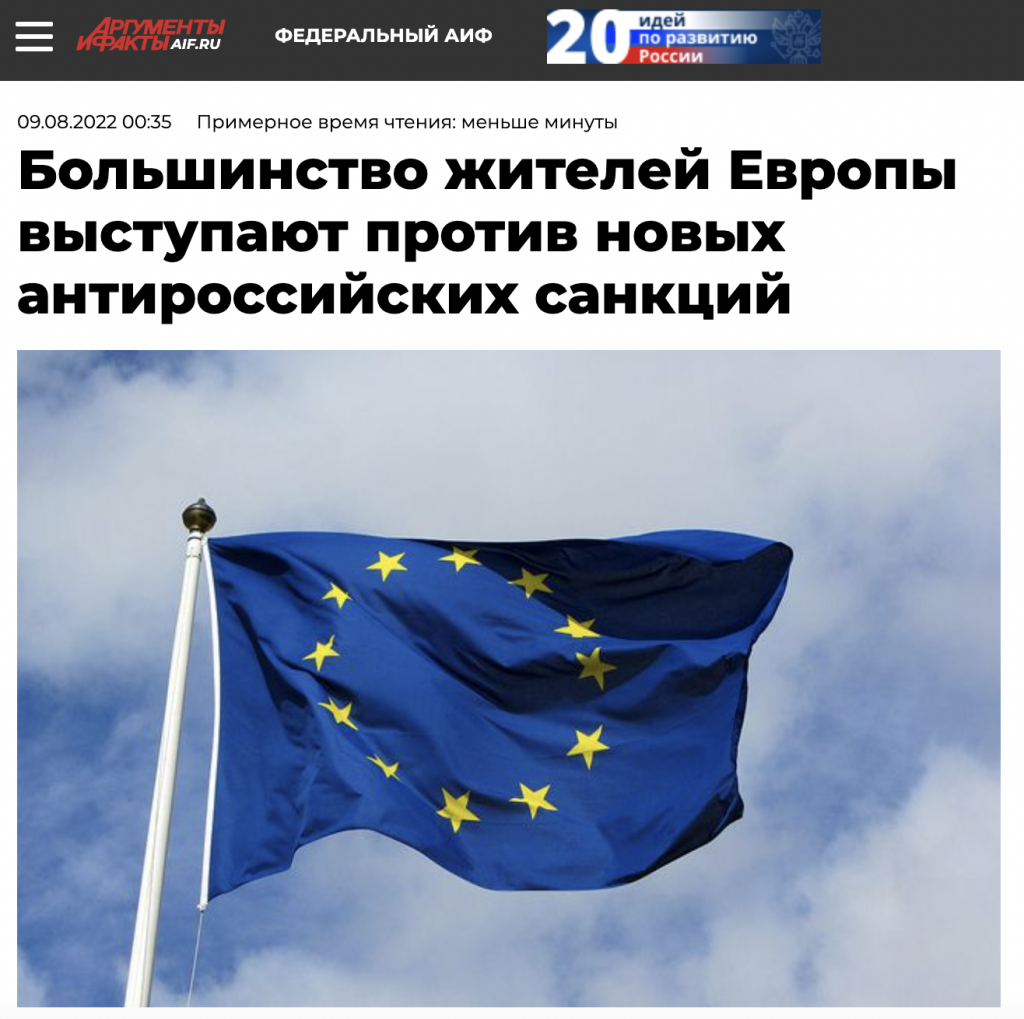
On August 8, YouGov published a study “War in Ukraine: A View from Poland” for the period from June 22 to July 11. The survey tracks the perception of the war in Europe, among the issues the survey explores are an assessment of the government’s efforts to support Ukraine, attitudes towards new anti-Russian sanctions, support for further military assistance and the migration crisis. In the block devoted to anti-Russian sanctions, the authors of the study polled several issues: an assessment of the contribution of Europe and America to the imposition of sanctions against Russia; whether anti-Russian sanctions are a sufficient measure in containing Russia; and whether respondents will support further economic sanctions against Russia if they adversely affect their living conditions.
The pro-Kremlin media chose to acquaint their readers with poll data relating to only one of the focus questions – whether respondents would support further economic sanctions against Russia if they would negatively impact their living conditions – and to pass off those results as a refusal to support further anti-Russia sanctions in general.
This refers to such adverse effects as a significant increase in energy prices; tax increases to cover defense spending; oil and gas shortages; an increase in the overall cost of living. 45% of the Poles said they were against further sanctions if they would adversely impact on their economic situation, as did 47% of the UK respondents, Germany and Spain both came in at 54%, 59% of Italians and 63% of French respondents.
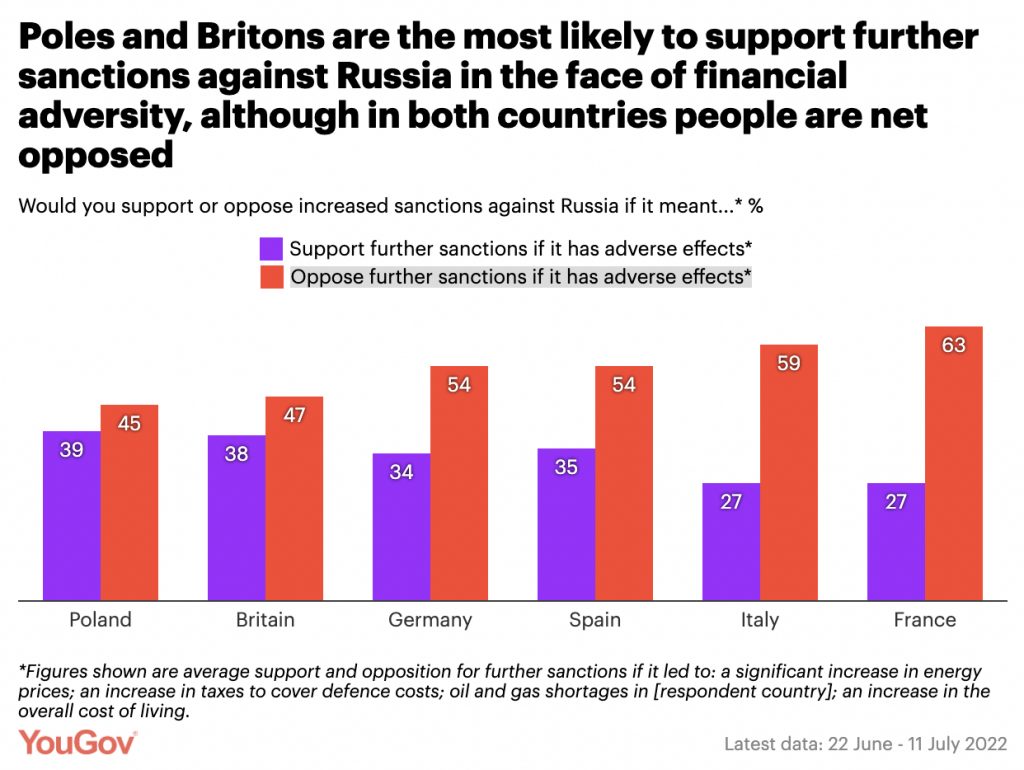
In fact, YouGov researchers write that, according to their poll, most Europeans support further sanctions against Russia in their country. Supporting further sanctions are 74% of polled Poles, 75% of UK residents, 76% of survey respondents in Spain, 55% of Germans, 56% of Italians, and 62% of France respondents all said they supported further sanctions.
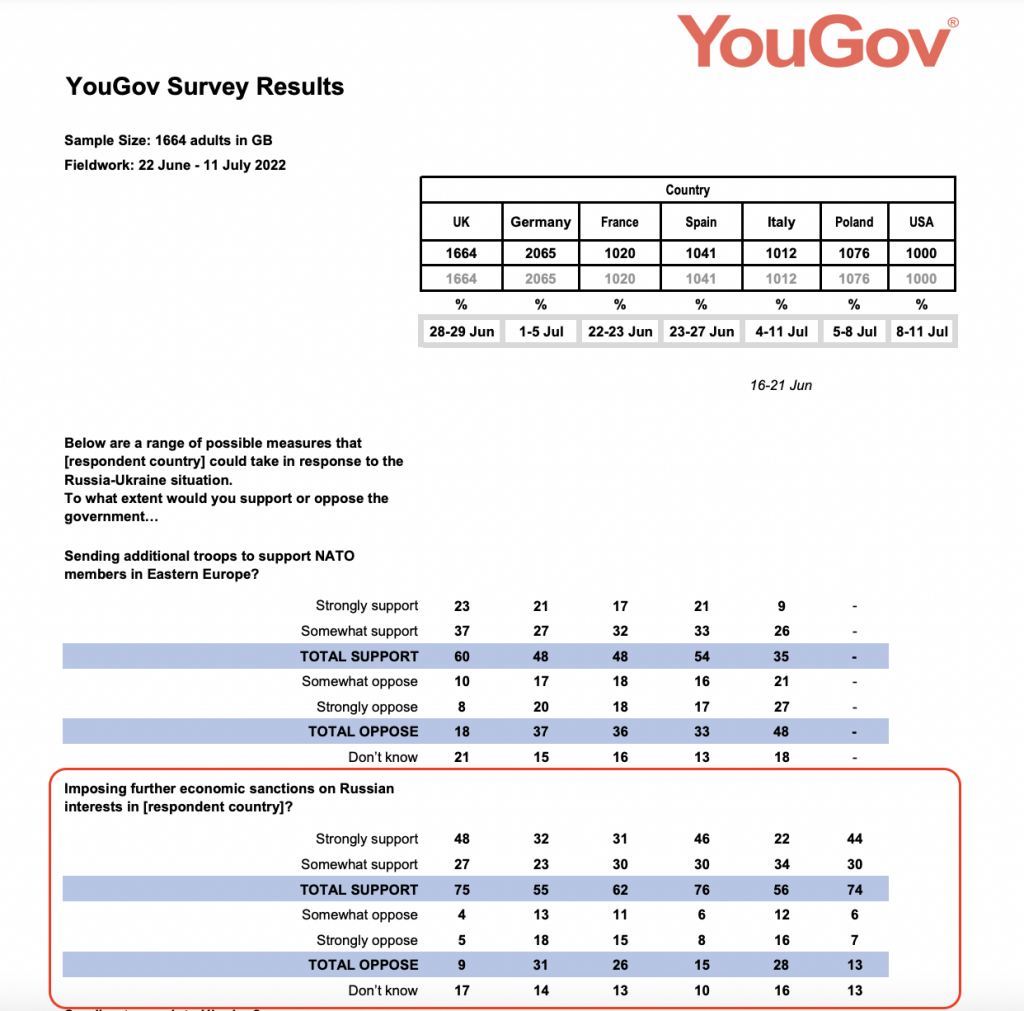
Moreover, 63% of those surveyed in Poland believe that the current sanctions against Russia do not go far enough. This was also stated by 56% of respondents in Spain, 51% in the UK, 41% in Germany, 34% in Italy and 36% in France.
Even against a backdrop of the rising the cost of living, most Europeans believe that at present, Western countries are not taking enough measures against Russia to prevent it from winning the war, measures such as increased economic sanctions against Russia and military aid to Ukraine. This is the opinion of 62% of respondents in the UK, 59% in Germany, 59% in France, 76% in Spain, 58% in Italy, 53% in Poland.
Cherry picking data that fits Kremlin narratives is a favorite technique of the Russian propaganda machine. Previously, StopFake debunked other Kremlin manipulations of sociological surveys; “Fake: Europeans do not want Ukraine in the EU, Fake: Nearly 90% of Odesa residents say they like Russia, Fake: More than 15 million Ukrainians maintain strong ties with the Russia.


